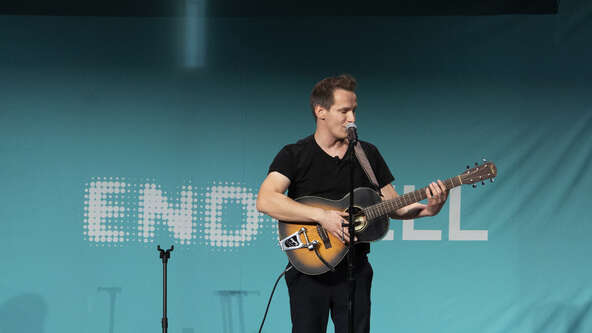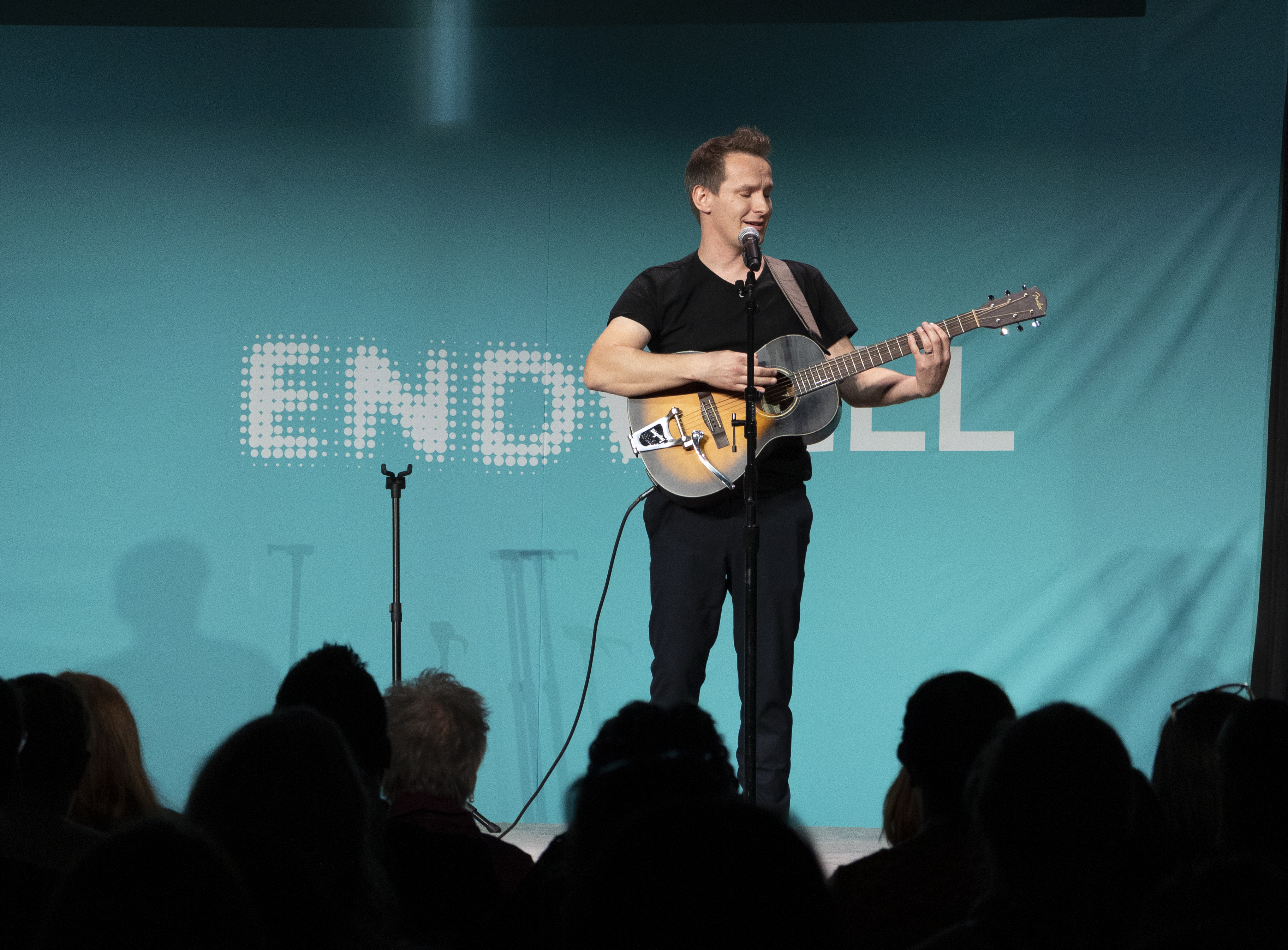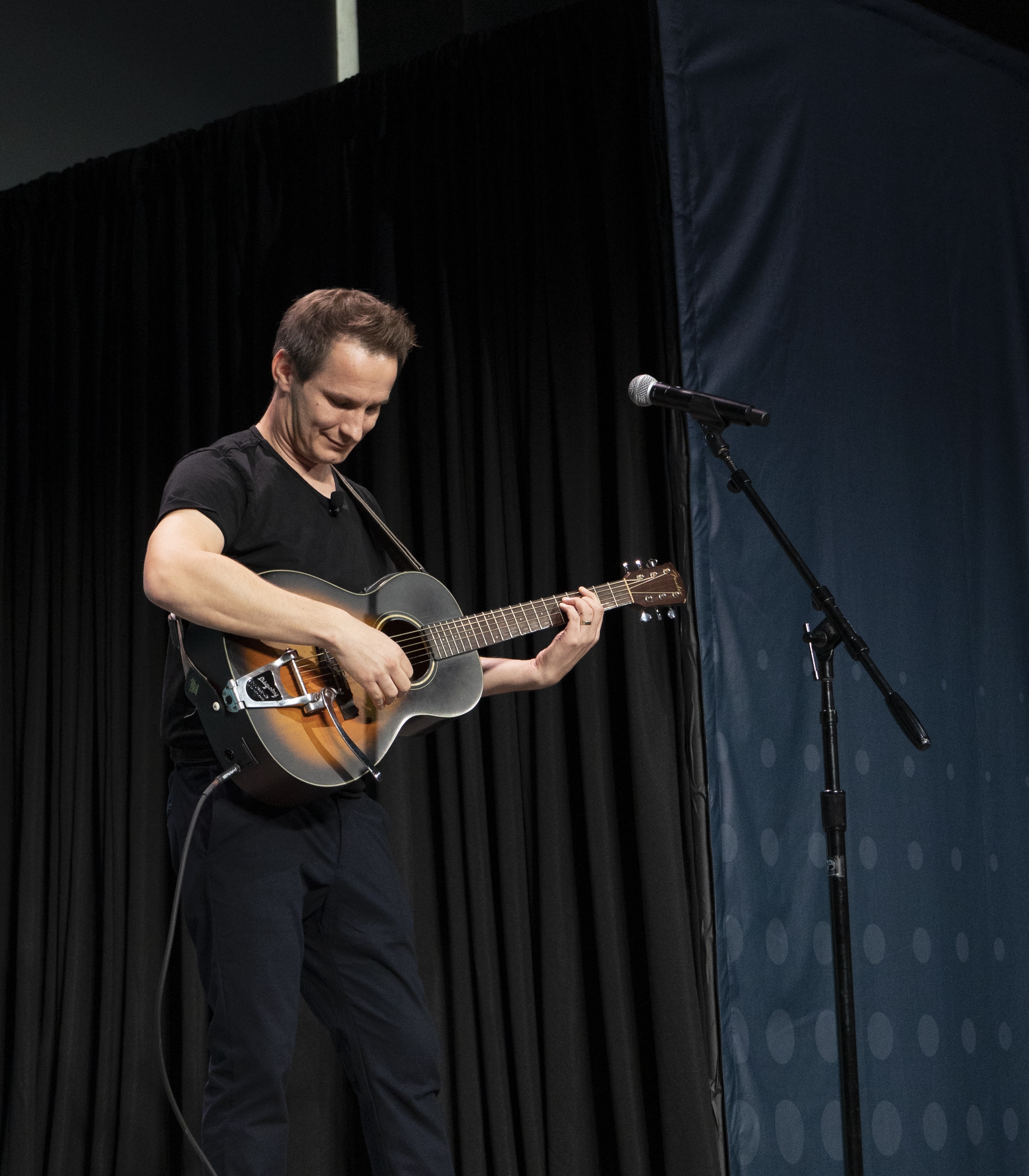Thought Leaders Gather to Imagine New Ways to End Well

Imagine a world where no child fears getting a shot or having their blood drawn because the medical community has worked to make those “pokes” painless. Imagine a world where cemeteries are filled with candlelight, song, and poetry to remember those we’ve lost. Imagine a world where people and families can have the endings they want, whether that be a traditional funeral, or as compost in a garden, or ashes dropped from a crop-duster over a beloved lemon grove.
These are the dreams, missions and stories of several of the two dozen thought leaders attending End Well 23. It is the first time the group has had an in-person symposium since 2019.
The End Well Foundation is a non-profit based in San Francisco, founded by Dr. Shoshana Ungerleider. The group’s symposium is the platform’s signature event that brings people from many disciplines together to help achieve its mission to “transform perception, policy, and care in ways that support individual goals and values at the end of life.”
Healing Without Hurt
Dr. Stefan J. Friedrichsdorf is the medical director of the Stad Center for Pediatric Pain, Palliative and Integrative Medicine. His expertise is in “blending modern techniques with timeless treatments” to minimize pain. He called for a revolution in how we think about the experience kids have with needles and blood draws for tests. He says now that pain, even among children, is seen as an unfortunate byproduct of treatment. But Friedrichsdorf thinks by using numbing creams and other distraction techniques, we can change their experience. While he says this would help all children, it would be especially impactful for those kids who endure long and complex treatment. One in four adults fear needles and studies have shown some adults and children have foregone treatment because of the fear. He has seen this play out in work he’s done in Africa and South America where it is yet another barrier to health care.
“We can pretty much promise to completely take away the pain and the anxiety caused by needles, vaccinations, blood draws … (to make) the pokes, those jabs, ouchless,” Friedrichsdorf said. “I invite you to join me on the ouchless jab challenge,” he urged the audience. “We need to make sure that we can promise for every child, every time, everywhere, that we will do the bloody best to prevent pain and anxiety caused by needle. Friedrichsdorf believes that the pain of needles today “is the biggest health care problem for children in North America and the world.” He asked for support, saying, “If we wait for the health care system to change this, we’re going to talk again in 50 years.” He asked the audience to help spread the word about his campaign.
Common Ground
Pieter Deknudt, the founder of the Belgian company Reveil, is a singer-songwriter. After his friend, fellow singer Robbie, died in an accident, he began to search for a warmer, more collective approach to death and bereavement. He told the End Well audience that as November 1 (All Saints Day) approached two years after Robbie’s death, “I noticed that nothing was happening. No one was making any plans to get together around Robbie to commemorate him. The more I looked into it, the more I realized how colorless mourning culture had become at that time — how little creativity, how little energy, how little love we put into commemorating our beloved ones,” he explained. The All Saints Day holiday tradition in his home country is to lay chrysanthemums on the graves of loved ones. But when Deknudt heard a radio interview about a “9 percent increase in the sale of the flowers,” he was angered and inspired to create something less commercial and “more beautiful, warmer, more human.” Deknudt’s simple plan to perform a song he wrote for Robbie grew to encompass this vision.
What began as that one concert has now expanded to more than 150 gatherings around Belgium and includes poets, singer-songwriters, brass bands, dancers, storytellers and visual artists all paying tribute to the forgotten stories behind the tombstones. Deknudt asked the End Well audience to help him spread this “mourning revolution” beyond Belgium. He believes that the arts are the secret to breaking down barriers that can isolate people in their times of need.

The Long Arc of Loss
Laurel Braitman, Ph.D. is a New York Times bestselling author, professor and advocate and director of Writing and Storytelling at the Medical Humanities and the Arts Program at the Stanford University School of Medicine. Braitman shared the story of her father’s prolonged illness and death, her guilt and healing along her grief journey. She shared that she discovered that only by engaging with her grieving younger self was she able to come out of hiding from what scared her most.
Braitman's explained at End Well 23 that she came to this revelation following a trip to the wilderness alone with only her thoughts and feelings – no food or other distractions. She explained that she "got very bored, very dirty and very much in need of coffee.” But she also realized something essential to understanding her grief.
“What scared me the most wasn’t even my most negative feelings. It was love. Love is the gateway to negative feelings. Hear me out. Because you can lose it, right? I hate love. I hate caring about anyone or anything. I knew that that couldn’t stand. I wanted to live the kind of life that I knew my dad had actually wanted for me, a big brave one. And to do that, I was going to need to understand that courage looked different.” She realized her regret, guilt and drive to achieve had not helped her cope with her grief.
Braitman next went on to work for a nonprofit, Josie’s Place in San Francisco, to help kids with their grief as a volunteer facilitator. There she “immediately felt less alone” and saw herself reflected in their experience. “The kids taught me the some of the most important lessons from this journey … they also taught me that the worst thing that you can do when you’re sad is try not to be sad. Which sounds basic, but I spent years trying not to pay attention to it,” she said. Working with the kids, Braitman realized that many of them had felt guilt and blame just as she had. “It’s easier to blame yourself, even though that’s painful and uncomfortable, than to admit that bad things can happen for no reason at all.”
But that wasn’t the end of her challenges. “Life is nothing, however, if not a sushi conveyor belt of things that are going to teach you and test you at the same damn time,” Braitman said. Braitman’s family home burned in a wildfire at their ranch, destroying many of the things the father had left behind as well as a substantial part of their avocado orchards. Just two years later, her mother developed cancer and died quickly.
But using the lessons of her father’s death, the family decided to hold a living memorial with her mom. “It hurt like the dickens, also it was so beautiful.” Braitman shared an inspiring video of her mother’s ashes being dropped from a crop duster plane over her beloved lemon grove a year after her death. Braitman says she learned in the process that “death is a doorway, not a destination” and “no matter what you believe about the afterlife, as soon as you die, you immediately start being something else, another form of life.”
These three speakers are just a tiny sample of the inspiring conversations at End Well 23. The symposium featured talks by about two dozen comedians, physicians, authors, hospice nurses, social media stars, filmmakers, TV producers, grief counselors and others. End Well is a nonprofit “on a mission to transform how the world thinks about, talks about, and plans for the end of life.” You can learn more about End Well at their website.
